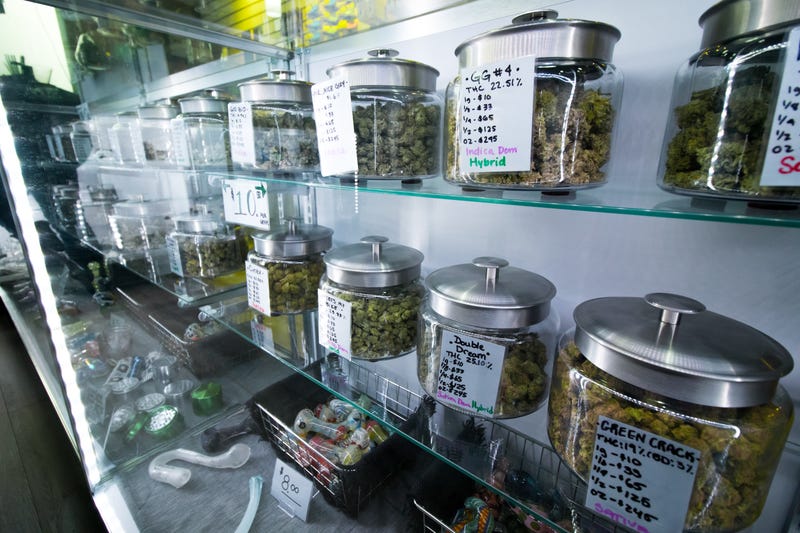
HARRISBURG, Pa. (KYW Newsradio) — The Pennsylvania House of Representatives has passed a bill that would legalize adult-use marijuana. House members debated the bill for nearly two and a half hours, but few minds were changed as it ended with a party line vote.
The bill passed 102-101 with all Democrats in favor and all Republicans opposed, meaning its future is at best uncertain as it now has to pass the Republican-controlled State Senate.
The bill’s sponsor, Philadelphia Democrat Rick Krajewski, said under this bill, Pennsylvania marijuana retailers would be owned and operated by the state, to ensure what he calls “massive, multi-state cannabis companies” don’t dominate the market.
“Today, 10 out-of-state corporations with a combined valuation of over $6 billion control more than 70% of our current medical dispensaries,” he said.
Supporters of marijuana legalization, like House Majority Leader Matt Bradford, a Montgomery County Democrat, said people are already driving to states that border Pennsylvania to buy marijuana, getting it on street corners, or buying hemp-derived THC with questionable purity and potency.
“Anyone with their eyes open knows that what goes on every day in this commonwealth, in strip centers and street corners is immoral. It is unconscionable, and it must stop,” he urged.
Opponents, like Republican Charity Grimm Kruppa, argued the dangers they saw with legalization including its effect on children and teenagers.
“When marijuana becomes widely available, usage becomes normalized, and our young people pay the price,” Kruppa said.
The 173-page bill would set up what’s described as a “state store model,” with the state handling marijuana sales similar to how Pennsylvania sells liquor.
Krajewski says this model gives Pennsylvania-based cannabis businesses a shot at production while the state can keep prices low and collect sales and tax revenue.
But critics of that model argue the state should leverage current medical marijuana dispensaries or vape shops to see quicker profit. York County Republican Mike Jones said, with an up-front investment of $370 million, it could take 25 years for the state to see any profit.
“Only the state of Pennsylvania could come up with a scenario where we create a monopoly on selling marijuana and find a way to lose money doing it,” said Jones.
